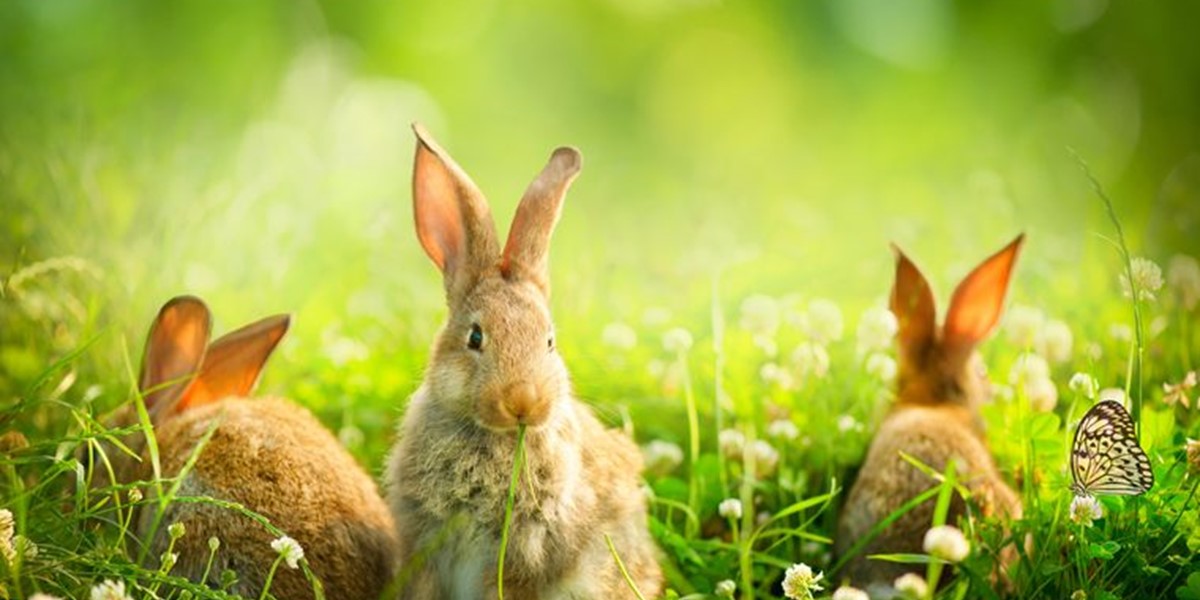Rabbit Haemorrhagic Disease

Rabbit haemorrhagic disease (RHD), also known as viral haemorrhagic disease (VHD), is a highly infectious and often fatal disease that affects wild and domestic rabbits.
There are now 2 strains of VHD in the UK -
RVHD1 is a swift and efficient killer – almost all unvaccinated rabbits who catch RVHD1 die within a day or two. The virus causes massive internal bleeding. Some rabbits bleed from the nose and back passage before death, others die so quickly there may be no outward sign of disease at all.
RVHD2 is often fatal, although some rabbits have recovered with veterinary care. What makes it more dangerous in some ways is that it has a longer period in which the rabbit is infectious, this results in the disease spreading more widely. The strain can also be less easy to recognise because there is often no visible bleeding, so rabbits can simply be found dead or ill with no obvious cause.
How can Pet Rabbits catch VHD?
Both strains of RVHD are spread by direct contact with infected rabbits, or indirectly via their urine or faeces. The viruses can survive for months in the environment, and it is easy to bring home to your pets. They survive cold very well.
For example:
Hay may have been in contact with infected wild rabbits as grass growing in the field.
Birds or insects may transport the virus on their feet (or in their droppings) to your rabbit grazing on the lawn.
The virus may be blown on the wind.
You might bring the virus home on your feet, or your other pets’ feet (or car wheels) from infected wild rabbit droppings.
You could bring the virus home on your hands or clothes.
Is there any way I can protect my rabbit other than vaccination?
They are very unlikely to get RHD (1 or 2) or Myxomatosis from hay or barn dried grass. Risk benefit analysis would be in the favour of feeding these foods. Foraged foods may potentially carry RVHD. Try to obtain plants from areas out of the reach of wild rabbits, and do not collect forage from areas of known wild rabbit RVHD infection.
Try to exclude wild rabbits and unless they can be excluded from the garden consider stopping the practice of moving pens around the garden and even consider a double fence round rabbit runs.
All pet rabbits should be vaccinated against both strains. There is no way of predicting where the next outbreak will strike, and no practical way of shielding your pet rabbits from all the possible sources of infection. Vaccination is the only way to be safe.
You may be familiar with the routine vaccine Nobivac Myxo-RHD but this does not cover rabbits against both strains.
The good news is that a vaccine called Filavac is now available which produced good immunity (full protection) against RHD2 in challenge studies.
The duration of immunity has been established at least 12 months, in laboratory conditions in healthy rabbits. The manufacturer’s advice is to administer a single dose of the vaccine, followed by annual boosters in low risk situations, and 6 monthly in the case of breeding does at high risk.
If you are unsure whether your rabbit is protected or wish to upgrade your routine vaccinations to include VHD2 then please contact us and we will be able to help you.
Other Summer Dangers -
One of the biggest dangers of the summer for rabbits is flystrike.
Generally, we think of it happening when rabbits have dirty bottoms, but that doesn’t always have to be the case. Blowflies (bluebottles and green bottles) can lay their eggs anywhere on a rabbit’s body. The eggs are tiny and hard to spot and they are laid deep in the fur so that makes it even trickier! Owners should examine their rabbits at least once a day, especially in warm weather.
The flies will lay eggs anywhere they smell blood or dirt, so wounds are a target, but dirty or wet bottoms are the usual place to find the problem. Rabbits with a poor diet, that are overweight or have mobility problems are most often at risk
What you need to do:
- Check your rabbits daily throughout the year and twice daily in warm weather.
- Check your rabbits’ diet is high in fibre and low in carbohydrates. This means the main food should be hay or grass and they should eat about their own size every day. They should also get a small amount of leafy greens and an egg cup full per rabbit per day of nuggets.
- If any of your rabbits are overweight their health is in danger for many reasons and flystrike is one of these, so talk to your vet about a healthy diet so that your rabbits can lose weight.
- If any of your rabbits seem to be having problems with movement, see your vet. There are medicines that can be given that will help them to be more mobile and better able to keep themselves clean
- Clean out your rabbits’ home every day. Remove wet or dirty bedding and replace it with fresh. Once a week give your rabbits’ home a really thorough clean and disinfect. Dry it thoroughly before refilling with clean bedding
- If your rabbits are at risk, then treat them with Rearguard. This is applied to your rabbit’s body every couple of months. It inhibits the development of maggots from fly eggs. Insect repellents/insecticides containing Permethrin can be used, to deter and kill flies, but always take your vet’s advice on such treatments, to avoid using those which contain Fipronil, which is toxic to rabbits You can’t rely on this alone, you still need to check your rabbits daily.
- Look into planting things that repel flies around your rabbits’ hutch and run.
- Buy a mosquito net from a camping shop and drape that over your rabbits’ hutch and run.
Indoor rabbits are at risk too, so don’t be complacent.
If you are concerned about any of the above, please contact us on 01437 762806 or call in and speak to one of our registered nurses for advice.
Information provided by the Rabbit Welfare Association
